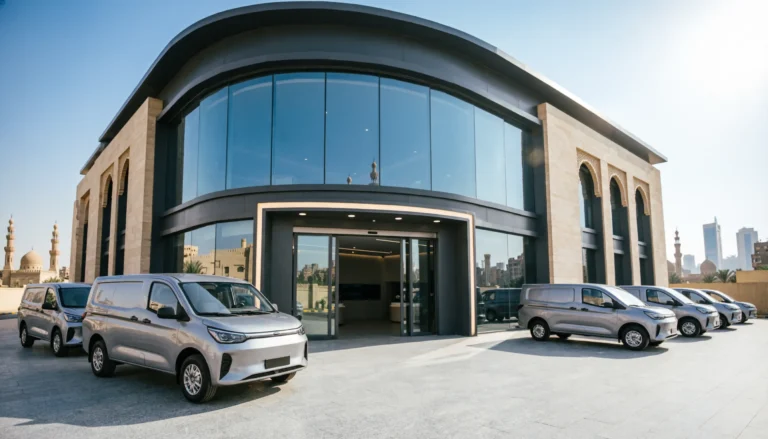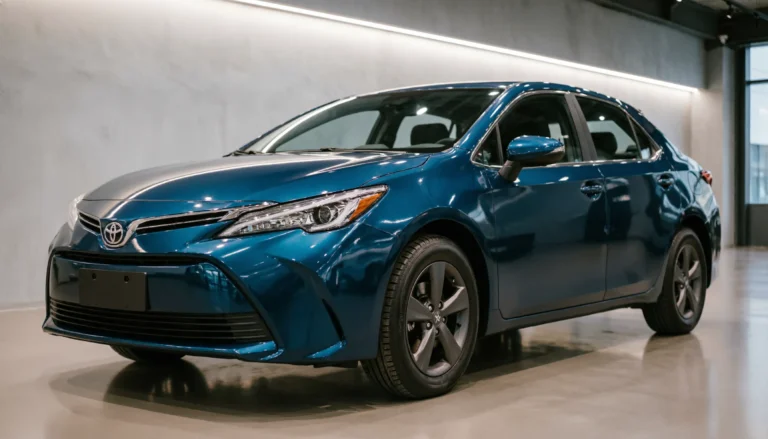
Tunnel Car Wash System Market Outlook (2025–2034): Growth Fueled by Smart Technologies and Sustainable Practices
The global tunnel car wash system market is poised for robust growth over the next decade, as highlighted in the latest comprehensive report added to ResearchAndMarkets.com’s offerings. Titled “Tunnel Car Wash System Market Size, Share, Trends, Analysis, and Forecast 2025–2034 | Global Industry Growth, Competitive Landscape, Opportunities, and Challenges,” the study outlines the key dynamics shaping the future of automated car wash infrastructure globally.
Market Overview and Growth Projections
According to the report, the global tunnel car wash system market is expected to grow from USD 8.91 billion in 2025 to USD 13.92 billion by 2034. This projection reflects a steady compound annual growth rate (CAGR) of 6.6% during the forecast period. The growth is largely attributed to urban expansion, increased vehicle ownership, rising consumer demand for convenience-based services, and significant technological innovations across the car wash ecosystem.
As urban populations swell and more consumers acquire vehicles, the need for efficient, high-throughput car cleaning solutions continues to rise. Tunnel car wash systems—long conveyor-style installations that can handle a large number of vehicles quickly—are increasingly favored by commercial operators such as gas stations, retail chains, and independent car wash businesses. Their ability to clean multiple cars simultaneously while minimizing manual labor is one of the primary reasons behind their growing popularity.
Key Market Drivers
Urbanization and Vehicle Growth
The rising rate of car ownership, particularly in emerging economies, is directly influencing demand for car wash services. Urban centers, where time is a precious commodity and water access may be limited, are especially receptive to fast, automated solutions like tunnel car washes.
Technological Advancements
Innovation is a cornerstone of the tunnel car wash system market’s momentum. In 2024 and moving forward, systems are becoming increasingly intelligent and automated. New installations are being outfitted with smart control panels, RFID-based membership and access management systems, license plate recognition, and integrated payment solutions.
Water reclamation and recycling systems are also playing a pivotal role. These technologies allow operators to dramatically reduce water consumption—an important consideration both from a cost and environmental sustainability perspective.
Eco-Friendly Practices
Environmental concerns are influencing both customer behavior and regulatory standards. Tunnel car wash operators are responding with greener practices: biodegradable soaps, pH-neutral cleaning solutions, low-energy dryers, and solar panel integration are becoming more common. Moreover, many systems now reclaim and treat used water on-site, helping operators stay compliant with environmental regulations while reducing operational expenses.
Regional Insights
North America: A Mature but Dominant Market
North America continues to lead the global market. The U.S. and Canada boast a high level of car ownership, a mature infrastructure, and an established culture of professional car washing. Here, tunnel systems are widely deployed and integrated into multi-location franchise models. Advanced technologies like IoT-based predictive maintenance and customer loyalty platforms are more common in this region than anywhere else.
Asia-Pacific: The Emerging Powerhouse
While North America leads in market maturity, Asia-Pacific is rapidly catching up in terms of growth rate. Countries such as China, India, and Japan are experiencing increased urban development, a growing middle class, and higher consumer spending—all of which fuel the expansion of automated car wash systems. The region’s relatively untapped market potential, coupled with rising environmental awareness, makes it a hotspot for future investment.
Key Trends Shaping the Industry
- Automation & Labor Shortages: Labor constraints are pushing operators to invest in fully automated tunnel systems. These setups reduce reliance on human staff while improving consistency and throughput.
- Touchless & Hybrid Systems: Hybrid tunnel systems that combine friction and touchless technology are gaining traction. They offer the thoroughness of brush-based washing with the gentleness of touchless systems, protecting vehicle finishes while ensuring cleanliness.
- Data-Driven Operations: Smart monitoring and predictive maintenance systems are now being integrated into new installations. These tools help operators track equipment health, predict failures, and schedule maintenance with minimal disruption.
- Subscription-Based Models: Recurring revenue models based on unlimited wash subscriptions are changing how car washes generate income. These models increase customer retention and help businesses stabilize revenue across seasons.
- Strategic Co-Location: Placing tunnel car wash systems near fuel stations, shopping malls, or convenience stores helps increase visibility and customer footfall. Operators are increasingly leveraging this strategy to maximize throughput and offer bundled services.
Market Challenges
Despite the promising outlook, several challenges persist:
- High Initial Investment: Establishing a tunnel car wash facility requires significant capital outlay, especially in terms of land, machinery, and compliance with local regulations.
- Real Estate Costs: Particularly in urban areas, high real estate prices can limit new entrants from setting up large-scale tunnel operations.
- Water Management Regulations: Environmental laws regarding water usage and discharge are becoming stricter. Operators must invest in water reclamation technologies to remain compliant, adding to operational costs.
- Equipment Maintenance: While automation reduces labor dependency, it introduces complex machinery that requires specialized maintenance to prevent downtime.
Market Segmentation
The tunnel car wash system market is segmented based on several criteria:
- By Product Type: Conveyorized tunnel systems, touchless tunnel systems, hybrid systems
- By Application: Commercial car washes, fleet vehicle cleaning, retail centers
- By Technology: RFID-enabled systems, IoT-integrated, water recycling units
- By End User: Independent operators, franchise-based operators, fuel stations
- By Distribution Channel: Direct sales, distributors, online platforms
Competitive Landscape
The global tunnel car wash system market is moderately consolidated, with several established players competing on technology, service, and geographic reach. Major companies featured in the report include:
- Tommy Car Wash Systems
- MacNeil Wash Systems (National Carwash Solutions)
- Motor City Wash Works
- Sonny’s The CarWash Factory
- PDQ Manufacturing, Inc.
- Istobal S.A.
- WashTec AG
- Belanger, Inc. (Dover Company)
- Karcher GmbH & Co. KG
- PECO Car Wash Systems
- AutoEquip Lavaggi S.r.l.
- Tammermatic Group
- Ceccato S.p.A.
- InterClean Equipment, LLC
- Ryko Solutions, Inc.
These companies are focusing on product innovation, expansion into emerging markets, and partnerships with retail and fuel station chains to expand their footprint.
Report Highlights
- Forecast Period: 2025–2034
- Base Year: 2024
- Estimated Market Size (2025): USD 8.91 Billion
- Projected Market Size (2034): USD 13.92 Billion
- CAGR: 6.6%
- Number of Pages: 150
- Regions Covered: North America, Europe, Asia-Pacific, Latin America, Middle East & Africa







